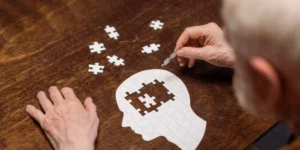Cues Shape Our Addiction Journey, Guiding Recovery's Path Forward
How do specific cues trigger cravings in individuals undergoing addiction treatment, and what strategies can help manage these triggers effectively during rehab? Our counsellors are here to help you today.
FREE ASSESSMENT082 747 3422Understanding “cues” or triggers is vital in addiction treatment and alcohol rehab. These cues are stimuli that cause a strong craving for drugs, deeply linked to the brain’s chemistry and function.
Historically, recognising cues has been key to understanding addiction. These cues can be places, times, people or emotions like stress or happiness. For example, a former smoker might crave a cigarette in social settings where others smoke or someone recovering from alcohol addiction may struggle with cravings when passing a favorite bar.
These cues activate the brain’s reward system and the release of dopamine, a neurotransmitter linked to pleasure. In addiction, the brain starts associating these cues with the intense pleasure of drug use making them significant in relapse.
Managing cues is fundamental for successful addiction treatment. This involves identifying personal triggers and learning coping strategies. Therapies like Cognitive Behavioural Therapy (CBT) help change thought patterns related to cues and mindfulness and relaxation techniques manage the emotional and physical responses.
The environment is also important in handling cue-induced cravings. Rehab facilities often create a safe, controlled space to minimise these cues, supporting recovery without the constant presence of external triggers.
Cues can take various forms, such as people, places, events, emotions or even certain objects. They are associated with the pleasurable experiences individuals had during their addictive habits. For example, if you used to drink alcohol while socializing with friends, seeing those friends or being in social situations may act as cues that trigger cravings for alcohol.
In addiction recovery, becoming aware of and managing these cues is essential for maintaining sobriety. By recognising and understanding the cues that influence your addictive behaviors, you can develop strategies to avoid or cope with them. Identifying and avoiding certain places, people or situations that serve as strong cues can help to minimise the temptation to relapse.
Additionally, professionals in the addiction recovery community often use the term “”high-risk situations”” when referring to environments or circumstances that can intensify the likelihood of relapse. These situations may contain numerous cues that evoke cravings and increase the vulnerability of individuals in recovery.
The concept of cues in addiction treatment emerged following research conducted in the 1960s. Scientists studying classical conditioning and learning theory noticed that certain stimuli could trigger cravings and relapse in individuals with substance use disorders. Since then, the understanding of cues and their impact on addiction has continued to evolve, leading to the development of effective strategies to manage and overcome them.

The Brain Does Not Forgive Our Coping Habits Alzheimer’s disease scares people because it looks…

Peyote or Lophophora williamsii, is a small cactus with significant cultural and spiritual importance, especially…

A psychiatrist is a medical doctor specialised in psychiatry, focusing on the diagnosis, treatment and…
What are the immediate and long-term health risks of cocaine use that can impact overall well-being?
How does the social acceptance and legality of alcohol contribute to its dangers in modern society?
Inpatient Rehab
Rehab care is a good option if you are at risk of experiencing strong withdrawal symptoms when you try stop a substance. This option would also be recommended if you have experienced recurrent relapses or if you have tried a less-intensive treatment without success.
Outpatient
If you're committed to your sobriety but cannot take a break from your daily duties for an inpatient program. Outpatient rehab treatment might suit you well if you are looking for a less restricted format for addiction treatment or simply need help with mental health.
Therapy
Therapy can be good step towards healing and self-discovery. If you need support without disrupting your routine, therapy offers a flexible solution for anyone wishing to enhance their mental well-being or work through personal issues in a supportive, confidential environment.
Mental Health
Are you having persistent feelings of being swamped, sad or have sudden surges of anger or intense emotional outbursts? These are warning signs of unresolved trauma mental health. A simple assesment by a mental health expert could provide valuable insights into your recovery.
Is My Loved One Addicted?
Your responses are private and not stored.
It’s Professional.
Clinically grounded
Clear, practical guides on addiction and recovery, based on recognised treatment principles and South African experience.
Therapy for addictionIt’s Affordable.
Straight talk on costs
We unpack typical fees, medical-aid issues, and funding options so you can compare treatment choices without sales pressure.
Paying for treatmentIt’s Convenient.
On your terms
Short explainers, checklists, and FAQs you can read, save, and share in your own time, from any device.
What to expect in rehabIt’s Effective.
Better decisions
We focus on evidence-based guidance and honest discussion of risks, relapse, and family impact to support long-term recovery.
Evidence-based















